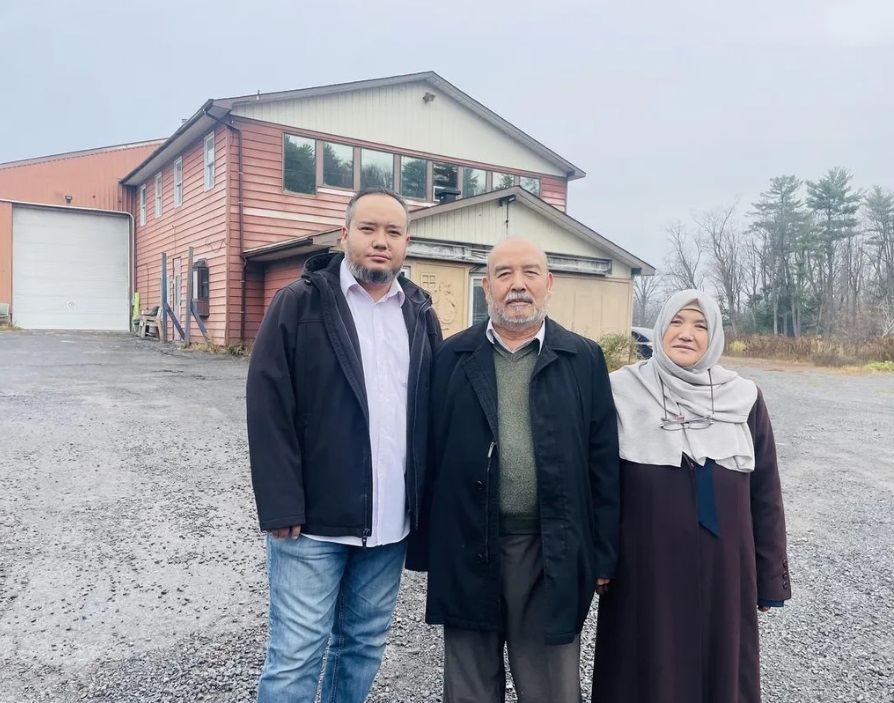Why are Uyghur refugees, who are suffering atrocities, still waiting for asylum?
Abdulrezzak Muhammed expressed gratitude at being able to recently host over 100 fellow Uyghurs from across Canada at the community centre he runs in Ottawa’s east-end.
They were in town last Wednesday as part of a delegation urging parliamentarians to support a private member’s motion to resettle 10,000 Uyghurs and other Turkic Muslims here in Canada.
“The idea for building this centre has been to provide a place to learn and to advocate on Uyghur rights,” he told me by phone. While his immediate family escaped from the Xinjiang Uyghur Autonomous Region decades ago, members of his extended family are currently missing, jailed or are being held in concentration camps.
Tens of thousands of persecuted individuals have escaped such fates by fleeing China and are now living in countries under extreme pressure to send them back where “they face the serious risk of mass arbitrary detention, mass arbitrary separation of children from their parents, forced sterilization, forced labour, torture and other atrocities,” according to motion M62.
It was put forward by Sameer Zuberi, a Liberal MP and chair of Parliament’s foreign affairs subcommittee on international human rights and was the subject of debate last week.
“In the past, we have welcomed many different people who have been fleeing for their lives from genocides, from crimes against humanity,” Zuberi told the House. “We created some special pathways. We can do this again, now, today.”
The pressure seems to be working. It has so far received support from MPs from all parties. The next debate will be in December, with a vote expected in the New Year.
The motion asks the government to “urgently leverage Immigration, Refugees and Citizenship Canada’s Refugee and Humanitarian Resettlement Program to expedite the entry of 10,000 Uyghurs and other Turkic Muslims in need of protection, over two years starting in 2024 into Canada.”
For Muhammed, he’s inspired to see members of his community rally to push parliamentarians to do more to help those who have fled what Parliament has recognized as a genocide.
His own father, Aymuhammed Hafizoglu, was imprisoned for 17 years in China after pushing for democratic reforms in the 1980s and 1990s. He eventually fled to Egypt and then to Turkey, where he ran a successful import-export business.
Decades after his family immigrated to Canada, the elder Muhammed invested over $700,000 of his own money to establish the Ottawa Uyghur Centre, to be fully functional in the new year. The hope is that more vulnerable Uyghurs will be resettling in Canada soon after.
Yet for Mehmet Tohti, executive director of the Uyghur Rights Advocacy Project, action can’t come soon enough with so many lives at stake. He told me that he learned of his own mother’s death in a concentration camp in 2020. He’s had trouble sleeping ever since.
“This is personal for me,” he said by phone. Tohti now devotes all his time to advocating for Uyghur rights.
He struggles to understand why Uyghur refugees are still waiting for asylum. Especially when last spring, the Standing Committee on Citizenship and Immigration recommended the federal government “extend existing special immigration measures to Uyghurs and other Turkic Muslims,” among similar measures provided to others.
“I would like to see Canada provide equal treatment to all vulnerable people suffering from the same atrocity crimes. I don’t believe differential treatment for refugees fits into our value system.”
It certainly shouldn’t. Nor should shirking our responsibilities toward those suffering from crimes against humanity. As Members of Parliament Rachel Bendayan and Garnett Genuis told the House of Commons during last Wednesday's debate, “never again” must translate into immediate, concrete action.
Like saving lives and helping put an end to a genocide.

